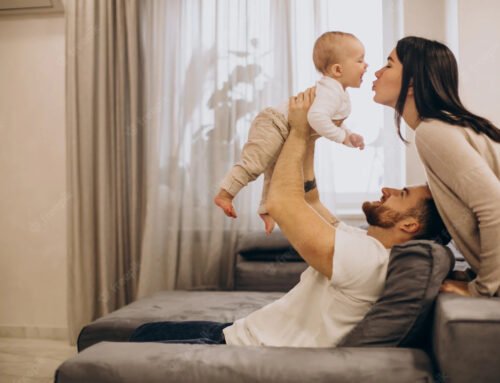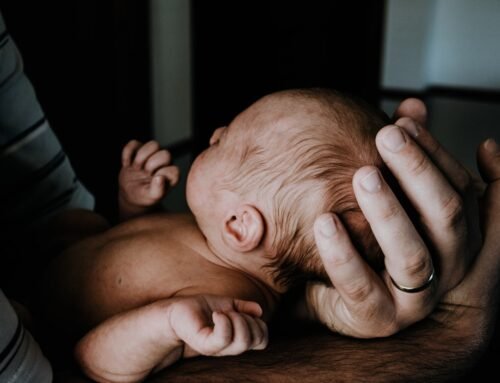It’s the Story of Mrs. Karyn Brown and Mr. Mike who tried to have a child for about 17 years and have gone through all painful, emotional and complex processes but then they decided to have an adoption as they were thinking it will be a simple and easy process. But still the fight to grow her family took years, endless red tape and almost unbearable emotional pain.
Ask Karyn now about the process, one where she fought the U.S. government and insurmountable odds to bring home a son, and she’ll tell you it was worth it. In fact, she’d do it all over again, each excruciating step.
But now Karyn has her beloved little boy who changed her world. She met her first time in 2010 at this child birth place ‘Kathmandu, Nepal’. Today they are happy but they remember the painful time they have faced first for a biological child then to adopt a child. They said they pray for the families who are looking for adoption in US especially from outside country.
Her Diwas.
Walking outside her Starkville house during a warm spring afternoon, Karyn is soon joined by Diwas, a bag of Doritos in his hands. He waves at the strangers who are walking toward his home, preparing for an interview with his family about the battle to bring him back to the United States from the orphanage where he spent the first 3 1/2 years of his life.
A few minutes later, Diwas shakes hands with the new people, holding his left hand away from his body to prevent the cheese dust coating his fingers from rubbing off on his new acquaintances.
“Diwas, wash your hands,” Karyn says to him.
With a slight grin and a twinkle in his eyes, Diwas lifts the offending hand and begins to lick the cheese away, a tactic employed by every 7-year-old who’s ever had the snack.
For Karyn and Mike, the youthful display is a reminder that they are now parents, a title they both yearned for since their marriage nearly 21 years ago.
“Adoption wasn’t foreign to us,” said Mike, 46, a meteorology and climatology professor at Mississippi State University. “My mother and father divorced, and when my father remarried they adopted three children, two domestic and one international. Karyn was adopted.
“And so when we couldn’t have a child of our own, it just seemed like a very simple thing for us to do.”
Karyn, 47, the MSU public relations academic program coordinator, said they put their names on both the domestic and international adoption lists.
“I think we just wanted to be parents,” she said of the eventual decision to adopt outside the country. “But I will tell you there was always just something on my heart tugging for Nepal. We really just fell in love with the culture, and there’s just a calling there.”
Waiting for a phone call, the Browns shared a lot of anxiety.
Then Nepal called.
The country, which had only recently reopened its borders for intercountry adoptions, responded with a referral for a child in July 2010, a full 14 months later than the Browns anticipated.
A picture was included, giving a face to their biggest hope.
They made plans to fly to Nepal and meet their child, but a few days before their trip the United States stopped accepting referrals of children to U.S. families. Since theirs had come before the cutoff, Mike and Karyn remained eligible. But the specter of uncertainty loomed over the process as allegations of fraud in the Nepal adoption system led the U.S. to re-evaluate the process there.
Four flights and 46 hours after leaving their home in Mississippi, the Browns were in Kathmandu, Nepal’s capital. It was Aug. 12, 2010, the same day they met their son at his orphanage.
“We got a picture, and it just doesn’t seem real. You get this picture you’ve been waiting for for three years and then you finally get the picture and you think, ‘Is this moment really happening?'” said Karyn.
“And then you actually got there at the orphanage, and he came around the corner and we saw him. The moment our eyes met I knew that was my son,” she said.
It’s the same moment Mike knew it was his boy.
“I knew immediately,” he said. “The orphanage did an amazing job in telling him that his mom and dad were on their way. So he was ready for us, too.
“He wasn’t scared. He climbed right up into our laps. The kisses on the cheeks started immediately and so, you know, immediately I knew that he was the right one,” Mike said.
The next day, the emotional high came crashing down when Mike and Karyn spoke with officials at the U.S. Embassy. The likelihood of Diwas going home with them was bleak.
Earlier in the adoption process, the couple had started a blog to document the process and keep their loved ones informed.
“Since we are here, we are choosing to fight for this,” Mike wrote in the blog that day.
The hardest part was about to start.
The struggle
The number of intercountry adoptions has fallen more than 60 percent since 2004, said Chuck Johnson, president and CEO of the National Council for Adoption.
“Some of the decline has to do with countries closing to reorganize,” said Johnson, adding most of these instances were to address accusations of corruption in countries like Nepal, Guatemala, Vietnam and Cambodia.
Accusations of corruption in Nepal’s adoption system led the U.S. to begin investigations into the cases during the summer of 2010, which timed with Mike’s and Karyn’s plans to adopt little Diwas.
During this lengthy and politicized process, families like the Browns were caught in the crossfire.
Even as the odds looked unfavorable, Mike remembered that moment when he first laid eyes on his son. “I knew that regardless of what it took, we were going to succeed at this.”
At one point the couple discussed their options, including one of them quitting work and remaining in Nepal.
“There was another way to get him home, but that required us to live there for two years and then we could bring him home on a different type of visa,” Mike said. “And we were willing to go that far, to give up our jobs.”
When the bad news had hit, there were 61 other families also forced into adoption limbo.
None gave up, Mike said. And now they also have their children.
After remaining in Nepal for several weeks, Mike and Karyn eventually had to leave in September. It was one of the darkest moments of their lives, but they knew they had a better chance of fighting for their son back in the U.S.
During those few months back home, both spent their free time trying to track down the necessary witnesses needed to prove to the U.S. government that Diwas was, in fact, an abandoned orphan and no fraud was present in his case.
Karyn said she would stay up late each night, scouring every source she could online to find the proof.
They reached out to the office of Sen. Roger Wicker, R-Miss.
Family and friends started petitions and raised money to help the couple afford the costs needed to pay for a private investigator and attorneys.
The family had budgeted somewhere around $25,000 to $30,000 for the initial adoption, Karyn said. The day her husband told her it was gone, she didn’t panic. Friends, family and strangers pitched in. The final costs haven’t been completely tallied, but it was more than double their original cost.
An adoption finalized
On Jan. 21, 2011, more than four months after Mike and Karyn last saw Diwas, they received word their son’s status as an orphan was accepted.
They were back in Kathmandu a week later, back at the orphanage to see Diwas. But they worried the little tyke might have forgotten them.
“We did not need to be nervous,” Mike wrote in their blog later that day. “It was as if we were never gone for the long 4 1/2 months. We were greeted with smiles, hugs and kisses.
“When the gummy bears made an appearance, we got to see the silly child that we remembered.”
After more paperwork and several visits to the orphanage, Mike and Karyn flew back home on Feb. 12, 2011.
Diwas was on the plane with them this time.
Returning home, the Browns – all three of them – were welcomed by family and friends. Their house was decorated and fully stocked.
“It was nothing but supportive and amazing,” recalled Mike. “Most of our friends and family gave us some space, some time to recover from a journey literally halfway around the world.
“The grandparents couldn’t wait,” he said. “They had to get here right away. But after a couple of weeks, we started integrating him into our social circle, and it was meant to be.”
Three years later, they still look in amazement at their son.
“The Nepalese government, they claim that they try to match the children with the adoptive family, regardless of the country,” Mike said. “And I don’t exactly know how they do that.
“They couldn’t have matched him more perfectly. His personality fits our family. The only thing that isn’t the same is the color of our skin. Otherwise, if you were blind, you would not know that he was adopted because of the way he interacts with us.”
It’s a bond that’s shared wholeheartedly by their son, who just turned 7 in April.
Ask Diwas about his favorite thing to do, and he’ll respond, “School.”
His favorite subjects: math and recess.
Ask Diwas if he has a favorite sport, and you’re likely to get a response based on whichever one he recently played. There’s baseball, swimming, soccer, basketball.
At one point, he decides soccer is tops. When asked about his favorite part of the game, he thinks for a second.
“Scoring a goal,” comes his reply.
Mike and Diwas throw the baseball back and forth in the backyard. Then the baseball bat comes out, and Diwas lets everyone know it’s time to play.
At times, Mike picks him up and hangs him upside down.
Karyn watches close by, laughing and smiling at the look of utter joy on her boy’s face and his infectious giggle.
Happy Mother’s Day
Today, Karyn celebrates Mother’s Day. It’s her fourth time waking up on this special day to greet her son.
“I think I cried most of that first Mother’s Day,” she said. “And I will say, my friends and family made it so special for me because they knew that it was my first Mother’s Day.
“But at the same time, with a heavy heart, I thought about all those mothers that were struggling with infertility and in that wait for adoption.
“And so I have to admit that every Mother’s Day, I’m elated that I get to share it with Diwas, but at the same time, I say a prayer and think about all of those that were in the same struggle that we were in because I know how difficult Mother’s Days can be.”
Karyn remembers times when she wasn’t sure she would ever know the familial bliss she has today. “I was a person of faith before this,” she said. “But there are times where you really start to question and wonder.”
Today, Karyn is a woman with faith renewed.
“I know Diwas was born for me,” she said. “God had it planned all along.”
Barnes also reports for The (Jackson, Miss.) Clarion-Ledger
Source: usatoday.com





